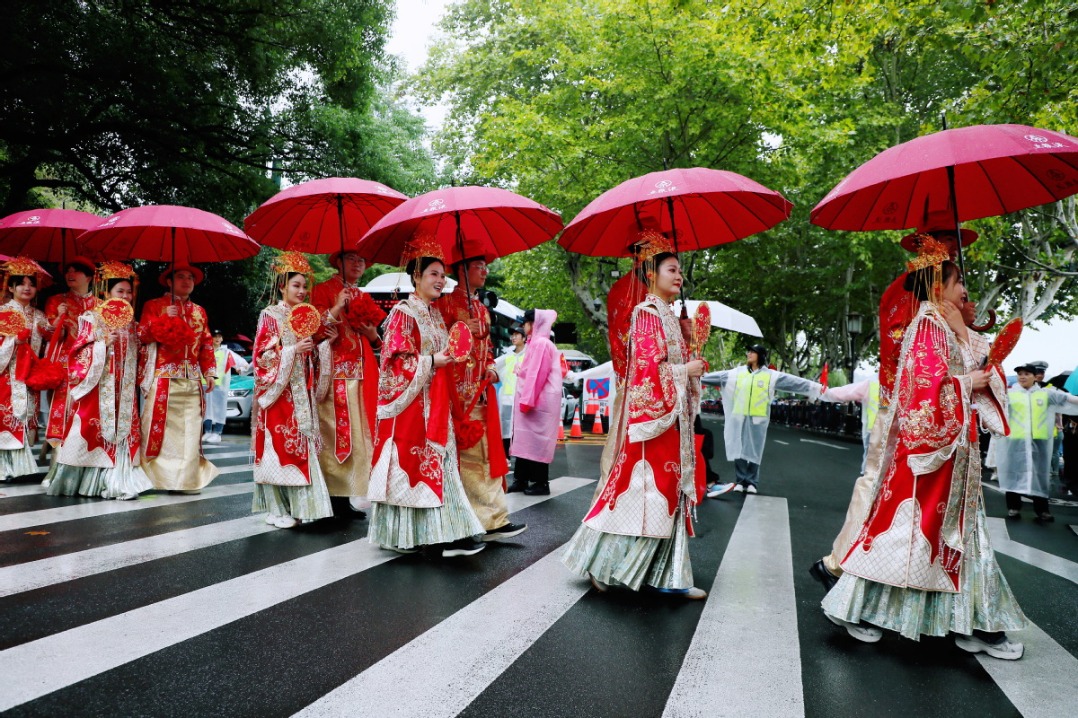The deeper lies go, the more exposed Lai's true colors are: China Daily editorial

Compared with his overtly separatist speech at his "inauguration" on May 20, the "pro-peace" and economy-focused address of Taiwan leader Lai Ching-te at a ceremony in Taipei on Thursday may, at first glance, sound less provocative. But to assume he is on the path to mend himself would be similar to doubting the ability of a chameleon to change colors to suit the circumstances.
There is no doubt the secessionist-minded politician has realized the importance of hiding his true colors and not being seen as a rabid troublemaker. It's possible he has compared notes with his backers in Washington who might have advised him to keep a low profile at this sensitive juncture and avoid giving Beijing any reason to launch strong response measures, and thus pass the ball to Beijing's court.
Both Lai and his US patrons are well aware of the rising tensions across the Taiwan Strait since the secessionist Democratic Progressive Party led by Lai's predecessor Tsai Ing-wen refused to recognize the 1992 Consensus — that both sides of the Strait belong to one China. It is obvious that Tsai and Lai mustered the courage to do so because of the collusion between the DPP and the United States.
So despite the great lengths Lai has gone to try and ride his DPP authorities out of the storm of their own making, it is evident that he used his Thursday speech to hide his separatist agenda under the garb of promoting economic development and "democracy".
But he let the cat out of the bag when he said that the fundamental reason for advancing the development of the island to a higher level is to ensure the island enjoys equal status in its dialogue with the Chinese mainland and enhance its capability to maintain status quo across the Strait — which essentially means preventing the reunification of Taiwan with the motherland.
The measures to improve the livelihoods of Taiwan residents are only a means to consolidate the DPP authorities' power so they can advance their "Taiwan independence" agenda.
The haste with which Lai stressed at the beginning of his performance on Thursday that the island's residents are conscious of their "national identity" — under Taiwan or any other name — and "the two sides of the Strait do not belong to each other" indicates how shrewd Lai is in reality.
But the fact that Taiwan residents conveyed their good wishes to Beijing on National Day on Oct 1 — Lai hastened to stress that China is not their motherland — shows that Taiwan residents, contrary to Lai's claims, see themselves as Chinese nationals.
The truth is that because of the DPP's separatist activities, the island's international space is shrinking continuously, as evidenced from the island's ever shortening list of "foreign state guests" at key ceremonies over the past decades.
It is a historical and legally binding fact that there is only one China, and Taiwan is an integral part of China. In fact, the one-China principle, recognized by the United Nations, is the bedrock of China's diplomatic relations with other countries.
Interestingly, Lai called on Beijing to use its influence to help end the Russia-Ukraine conflict and the Middle East crisis when he should be asking Washington to do so, because it is the latter that is prolonging the conflicts.
In doing so, Lai and his party are trying to claim the moral high ground by calling for peace in Eurasia and the Middle East, and portraying themselves as peace lovers, victims of "bullying" and defenders of "rules-based order", but they forget that the world has long seen through their tricks.
The DPP authorities are pushing Taiwan residents toward misery by pursuing their "Taiwan independence" agenda.


































